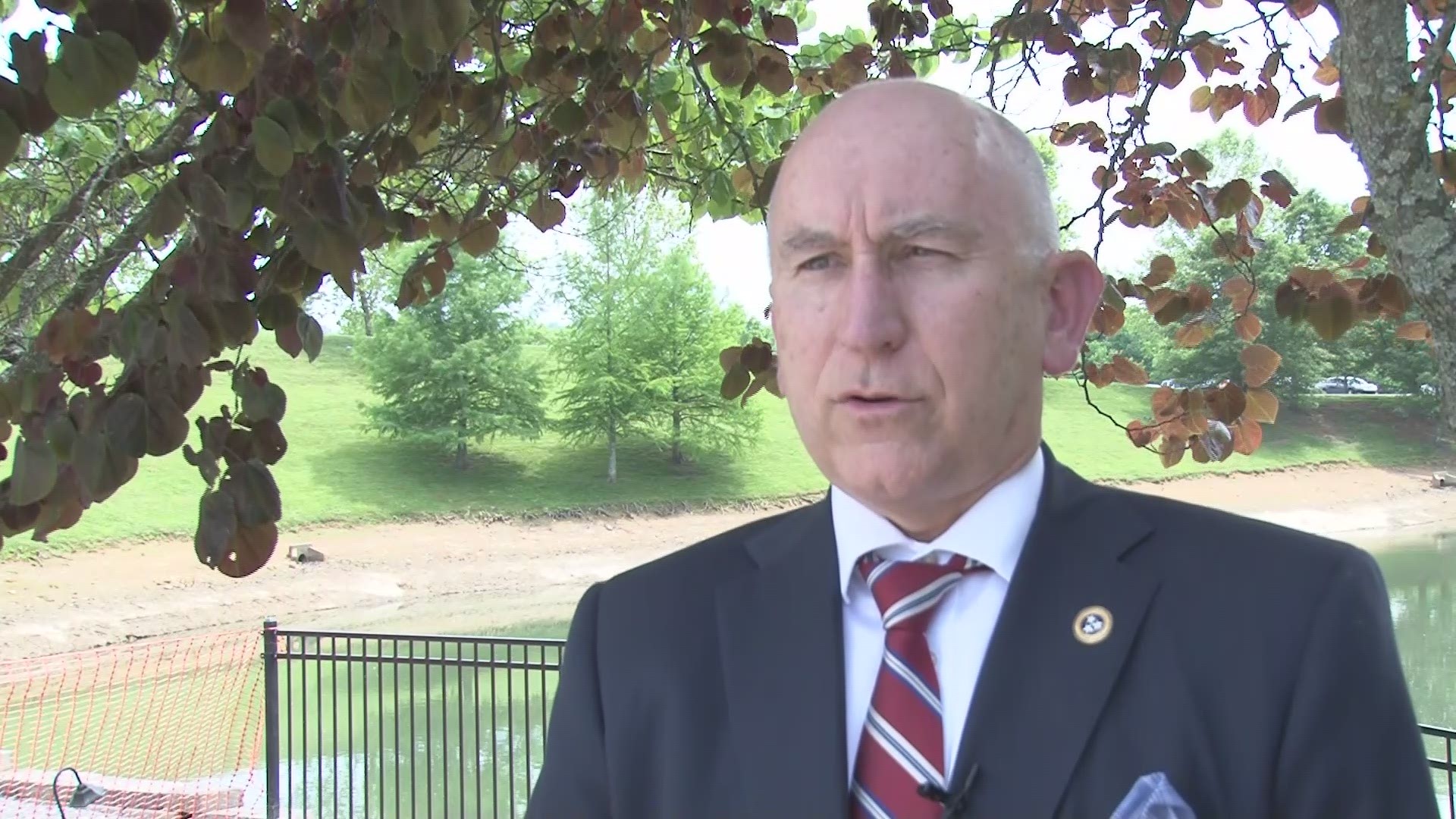Gov. Bill Haslam will allow a proposal seeking to prohibit sanctuary cities in Tennessee to become law without his signature.
The measure would also require local law enforcement officials to comply with U.S. Immigration and Customs Enforcement requests to hold immigrants for purposes of deportation.
"I think the best thing for the state to do with this decision is to move on from it," Haslam told reporters Monday morning.
He said he would allow the measure to become law without his signature.
Haslam's decision comes despite objections from a number of organizations and individuals who said the legislation was constitutionally suspect and could lead to unintended consequences.
The measure was among the final bills to receive approval before the General Assembly adjourned on April 25.
Immediately after announcing his decision, critics — including the Tennessee Immigrant and Refugee Rights Coalition and some Nashville council members — blasted the governor.
Knoxville mayor Madeline Rogero issued a statement, saying "Unfortunately, the state bill blurs the line between local law enforcement and immigration enforcement, which will make it harder for our officers to do their jobs and keep everyone safe. The bill does not affect Knoxville Police Department operations. We have always cooperated with ICE, while being clear that our local police do not do immigration enforcement. That’s not their jurisdiction or their role.”
Lt. Gov. Randy McNally, R-Oak Ridge, called the governor's action a "wise decision." House Speaker Beth Harwell, R-Nashville, the proposal will allow local, state and federal officials to work together to "keep our communities safe."
The governor's decision on the measure, which does not take effect until January 2019, could trigger boycotts and legal action. Critics of the bill have said both options are on the table.
Fabian Bedne, a Metro Nashville councilman, said on Twitter that he would begin working on looking at legal options.
One day after the bill's approval, TIRRC encouraged Haslam to issue a veto.
Since then, the Shelby County Commission and the Nashville city council approved resolutions asking Haslam to veto the legislation, as others urged the governor through letter writing campaigns.
Others to encourage such action include the American Civil Liberties Union of Tennessee, the Southern Poverty Law Center, a dozen national civil rights organizations, several labor unions, Nashville Police Chief Steve Anderson, faith leaders, educators, domestic and sexual violence advocates, criminal procedure and immigration law experts and criminal defense attorneys.
In two separate rallies in recent weeks, thousands gathered outside the state Capitol calling for a veto.
Proponents of the measure, including state Sen. Mark Green — the bill's sponsor — and U.S. Rep. Diane Black, who is seeking the GOP nomination for governor, also tried to pressure the governor. They argued the legislation is necessary in order to ensure there are no sanctuary cities in Tennessee.
Rep. Jason Zachary, R-Knoxville, said on Twitter the governor's action was a "big win" for taxpayers and the rule of law.
As Haslam considered the bill, he tried to tamp down concerns expressed by both sides.
Last week, Haslam told reporters he was concerned the legislation was "driving up a lot of fear on both sides."
He reiterated that view Monday, saying both sides have had some "irrational fear."
Before announcing his decision, Haslam outlined his three options on the bill, saying if he vetoed it, he was "relatively confident" there would be a call for a special session or the measure would be quickly taken up in 2019.
The governor said by vetoing the bill, he would prolong a discussion that would continue to stir up fear and confusion.
Haslam said if he were to sign the measure, he would be tacitly admitting that there is an issue with sanctuary cities in Tennessee.
"We spent a lot of time looking at what are the legal ramifications of this, and we became convinced that really other than expressly stating what was already allowed (it) didn't change (much)," he said.
Opponents of the measure have objected, saying the proposal will provide law enforcement officials the ability to inquire about someone's immigration status without probable cause.
Hedy Weinberg, executive director of the American Civil Liberties Union of Tennessee, said the proposal will force people to "live in the shadows" and shy away from reporting crimes to law enforcement.
Haslam disagreed, saying, "The reality is, I think you have some people that feel that way now and again I don't think anything really changes."
Renata Soto, executive director of Conexión Américas, condemned Haslam's decision, saying, "Governor, by letting this un-American racial profiling law go into effect, you have put a target on the back of thousands of Tennesseans, rejected the values upon which our nation was founded, and set our state backwards."
After Haslam's decision, critics of the bill began to plan for public demonstrations.
It is not yet clear whether Tennessee will see boycotts as a result of the new law. In Texas, which last year approved a similar measure that is still being considered in the courts, several organizations canceled events.
Nonetheless, Haslam's action quickly drew the ire of advocates for immigrants.
In a statement, Stephanie Teatro, co-executive director of TIRRC, said, "When history looks back at the steady march of Tennessee towards becoming a hostile and dangerous place for immigrant families, at the rising tide of nativism and xenophobia, and at the immoral attacks on immigrants in this country, Governor Haslam will see himself on the wrong side.”
The governor said Tennessee has welcomed immigrants and foreign investment, a point which critics disagree, citing, among other issues, the state's lawsuit against the federal government over refugee resettlement.
"We want to make certain obviously that people are following the legal process," he said.
Haslam said his administration labored over the decision to ensure "we get it right."
"I honestly think at this point in time this is the best thing for the state," he said.
Reach Joel Ebert at jebert@tennessean.com or 615-772-1681 and on Twitter @joelebert29.

